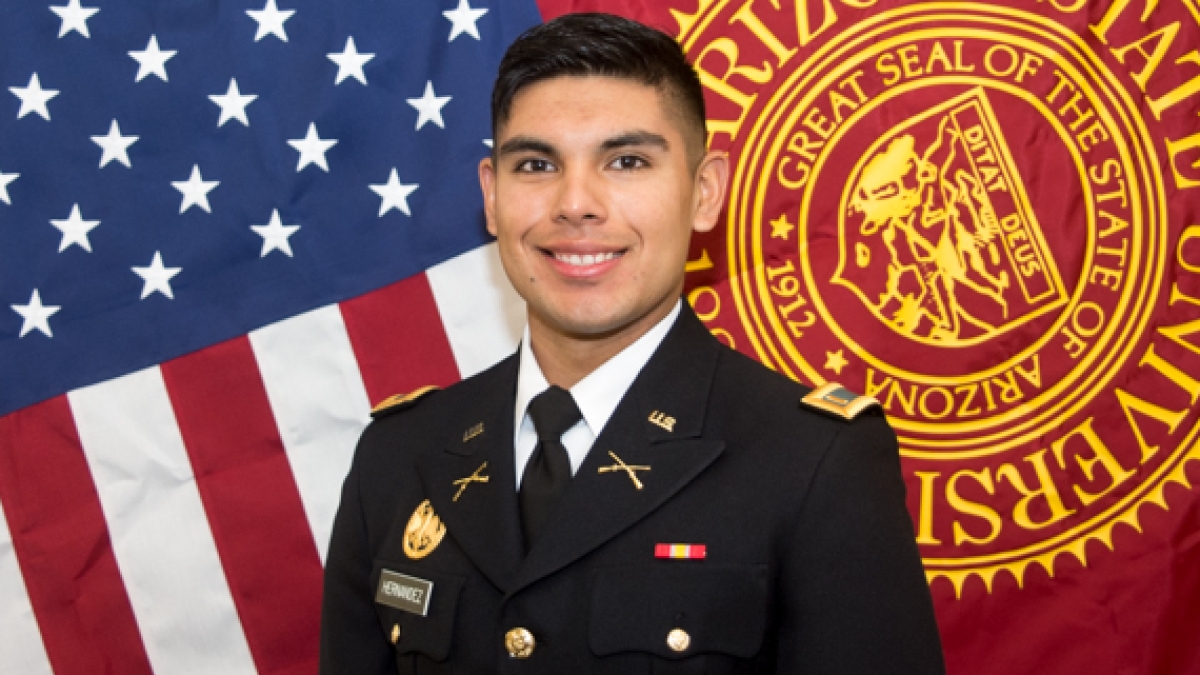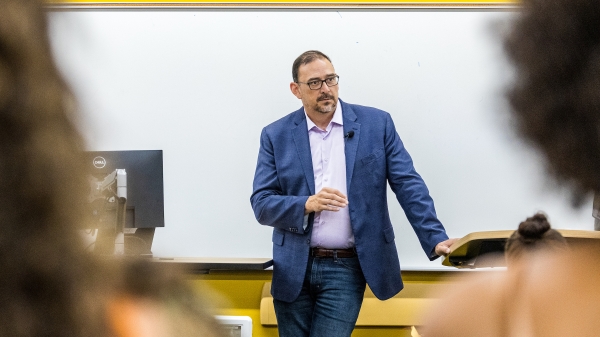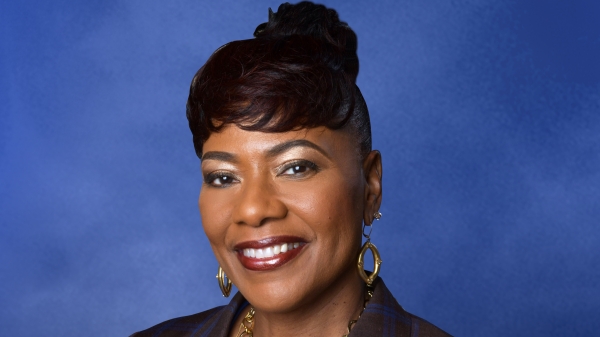Excelling outside his comfort zone

Photo by Lisa Robbins/Department of Military Science Army ROTC
Editor's note: This is part of a series of profiles for spring 2016 commencement. See the rest here.
Following in his brothers’ footsteps, Isaac Hernandez knew from a young age he wanted to join the U.S. Army and major in criminal justice. His mind was set on success from early on, which influenced him to join the dual-enrollment program at his high school, allowing him to complete an associate’s degree upon graduation.
The Washington native sought new opportunities and experiences outside of his small hometown. His first thoughts were enlist in the Army National Guard, but a recruiter pushed for him to pursue Army ROTC. He was offered a Guaranteed Reserve Forces Duty (GRFD) Scholarship and began his journey at Arizona State University
“I was offered a full ride to attend an out-of-state school,” Hernandez said. “No one in my family had attended an out-of-state school, but I took the opportunity.”
Hernandez will earn his bachelor’s degree in criminal justice and commission from Army ROTC as an infantry officer for an Army National Guard unit in Washington. He will also receive the Moeur Award at the Commencement Ceremony.
Question: What was your “aha” moment, when you realized you wanted to study the field you majored in?
Answer: My two brothers were criminal justice majors and I have looked up to them since a young age, so I wanted to follow in their footsteps. I wanted to help people and be involved with law enforcement.
Q: What’s something you learned while at ASU — in the classroom or otherwise — that surprised you, that changed your perspective?
A: The biggest thing I learned at ASU was how build relationships with people who care about you, such as mentors who can help if you have questions. Also, to have the humility of knowing that you won’t always be right, but you can rely on these people to guide you.
Q: Why did you choose ASU?
A: Coming out of high school a lot of my friends stayed in state, and I felt I wanted to challenge myself. Not a lot of people from a small town of 7,000 people can say they were able to leave their comfort zone, take a risk, jump on an opportunity and just go with it. ASU provided me with those opportunities to do something different than others.
Q: What’s the best piece of advice you’d give to those still in school?
A: Give your best at every opportunity, whether it counts or it doesn’t — you should always try your best — because you never know who is watching or taking note.
Q: What was your favorite spot on campus, whether for studying, meeting friends or just thinking about life?
A: The Sun Devil Fitness Center field is going to be pretty memorable. Every Monday, Wednesday and Friday, I was there at 6 a.m. for physical training. When I come back in 30 years from now, I’ll remember how I used to wake up at 4:50 a.m. to be standing in formation by 6 a.m. I’m not sure if it’s my favorite spot on campus, but I would say it’s the most memorable spot. It’s the place where my peers and I were motivated by the cadre or upperclassmen, we pushed ourselves and helped each other out. Comradery was built on that field.
Q: What are your plans for after graduation?
A: I plan to move back to my home state of Washington and serve as an infantry officer for the Army National Guard, 1st Battalion, 161st Infantry Regiment. As far as my civilian career, I’m in the hiring process for the U.S. Border Patrol. If this doesn’t work out, I plan to pursue law enforcement in Washington. My goal is to become a special forces officer for the National Guard, and hopefully join a SWAT team and become a SWAT commander.
Q: If someone gave you $40 million to solve one problem on our planet, what would you tackle?
A: I would help disabled veterans in whatever way possible. This goes back to being a leader: You want to take care of your soldiers because even when they get out they are still soldiers. They will always be soldiers. I would hope to have some sort of impact even if it was just one life.
Written by Stephanie Romero
More Law, journalism and politics

ASU's Carnegie-Knight News21 project examines the state of American democracy
In the latest project of Carnegie-Knight News21, a national reporting initiative and fellowship headquartered at Arizona State…

Arizona secretary of state encourages students to vote
Arizona Secretary of State Adrian Fontes looked right and left, taking in the more than 100 students who gathered to hear him…

Peace advocate Bernice A. King to speak at ASU in October
Bernice A. King is committed to creating a more peaceful, just and humane world through nonviolent social change.“We cannot…